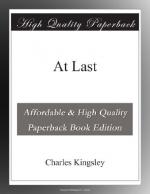“Lord! what is man, that thou art mindful of him! For that which befalleth man befalleth beasts—even one thing befalleth them. All go unto one place; all are of the dust, and all turn to dust again. Who knoweth the spirit of man that goeth upward, and the spirit of the beast that goeth downward to the earth? Man cometh in with vanity and departeth in darkness, and his name shall be covered with darkness. The dead know not anything, for the memory of them is forgotten. Also their love, and their hatred, and their envy is now perished, neither have they a portion for ever in anything that is done under the sun.
“Lord! teach us to number our days, that we may apply our hearts unto wisdom. Oh, spare me, that I may recover strength, ere I go hence and be no more!
“In the name of the father, son, and holy ghost—dust to dust, and ashes to ashes! Amen!”
“By the way, Mr. Aylett, the poor wretch up-stairs should be buried at the expense of the county,” remarked the coroner, before taking leave of Ridgeley and the egg-nogg bowl. “I will take the poor-house on my way home, and tell the overseer to send a coffin and a cart over in the morning. You don’t care to have the corpse in the house longer than necessary, I take it? The sooner he is in the Potter’s Field, the more agreeable for you and everybody else.”
Mr. Aylett pointed through the back window at the winding path across the fields.
A short line of black dots was seen coming along it, in the direction of the house. As they neared it they were discovered to be men, each with a hoe or shovel upon his shoulder.
“The deed is done!” said the master, smiling. “My good fellows there have spared the county the expense, and the overseer the trouble of this little matter. As for the Potter’s Field, a place in my servants’ burying-ground is quite as respectable, and more convenient in this weather.”
The jurors were grouped about the fire in the baronial hall, buttoning up overcoats and splatterdashes, and drawing on their riding-gloves, all having come on horseback. In the midst of the general bepraisement of their host’s gentlemanly and liberal conduct, Mrs. Aylett swam down the staircase, resplendent in silver-gray satin, pearl necklace and bracelets, orange flowers and camelias in her hair—semi-bridal attire, that became her as nothing else ever had done.
“My dear madam,” said the foreman of the inquest—a courtly disciple of the old school of manner, and phraseology—as the august body of freeholders parted to either side to leave her a passage-way to the fireplace—“your husband is a happy man, and his wife should be a happy woman in having won the affection of such a model of chivalry”—stating succinctly the late proof the “model” had offered to an admiring world of his chivalric principles.
The delicate hand stole to its resting-place upon her lord’s arm, as the lady answered, her ingenuous eyes suffused with the emotion that gave but the more sweetness to her smile.




